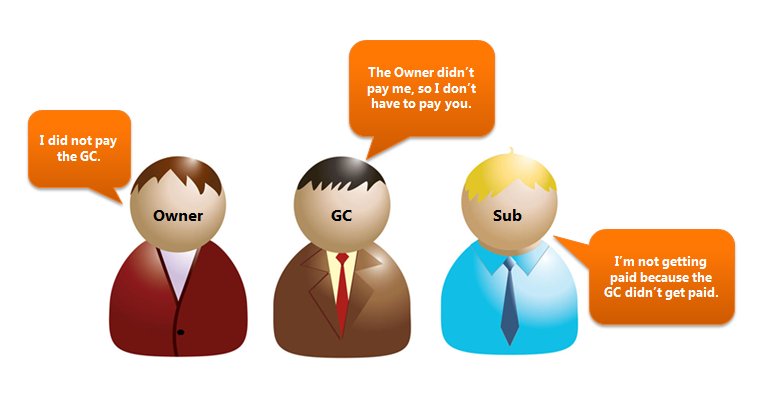
What You Should Know about Demand Letters and Mechanic’s Liens
A demand letter is a strongly worded request for payment, most often served upon your customer, advising legal action may be taken if payment is not received within a specified time period. A demand letter is not intended to be “a-walk-in-the-park-chasing-rainbows-and-butterflies.”
What should I include in a demand letter?
In order for a demand letter to be successful, it should contain factual information and be succinct/to the point.
- Date of the demand
- Your company’s name and contact information
- Your debtor’s name and contact information
- A reference to the debt (i.e. provide the project name or purchase order number)
- The amount of the debt
- The due date of the debt
- How the debt should be paid
- The consequence of not paying the debt
Who should receive a copy of the demand letter?
The demand should be served upon your debtor, but it is recommended you also send a copy of the demand to any party that may contribute to you being paid; this could include the project owner, project manager, prime contractor, subcontractor, lender and surety. The more people you notify, the greater the influence on the party not paying you!
The Consequences of Not Paying
Any time you send a demand for payment, you need to ensure there is a clear consequence for failing to remit payment. You may be thinking “A consequence? Why? They should just pay me!” See, the party(s) involved need to know there is a consequence for not paying you – sort of like when a child goes to touch a hot stove, we warn them “Don’t touch that or you will get burned and it will hurt!” – getting burned and the significant pain are the consequences of touching the stove. (Just to be clear, I’m not condoning “bringing pain” to your customer, though I now hear a voice saying “You want I should break your knee caps”…)
Be specific as to a realistic ramification for not paying:
“…If payment is not received, we may pursue all available legal remedies against you, including, but not limited to, filing a lien.”
Can I send a demand letter if I didn’t serve a notice?
Yes, absolutely YES! There are no prerequisites for sending a demand letter, other than the outstanding debt. Just remember to word the consequence accordingly.
When would I send a demand letter?
Here are a few instances where a demand letter may be the most useful and cost effective tool for recovering an outstanding debt:
- Before proceeding with a mechanic’s lien or bond claim
- Before proceeding with suit to enforce a mechanic’s lien or bond claim
- Before placing an account with a collection agency
Remember: demand letters can expedite payment, allow you to maintain control of your collection process and save you money.







